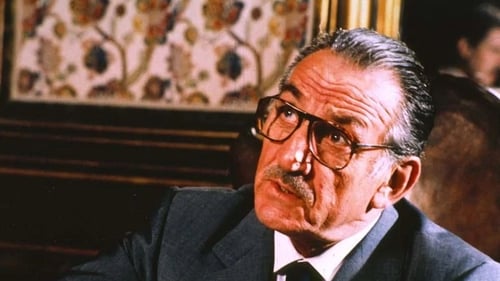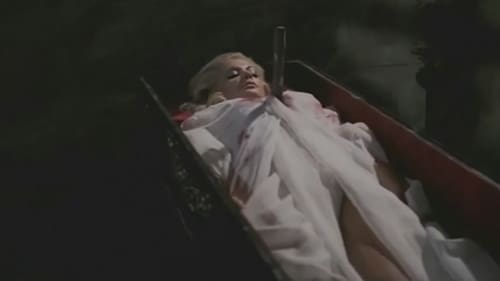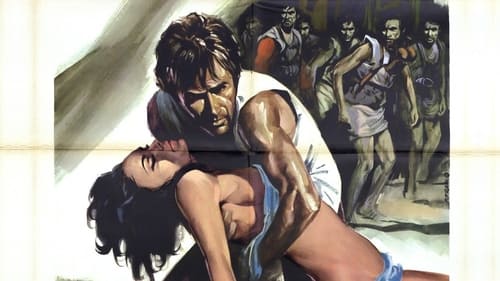
Conductor
In the late 1970s and early 80s, assassinations in Sicily get the attention of Communist deputy, Pio La Torre, who appeals to General Carlo Alberto Dalla Chiesa to become prefect in Palermo and take on the Mafia. Dalla Chiesa approaches the job with the same focus and methods he used in hunting down the Red Brigade.

Original Music Composer
In the late 1970s and early 80s, assassinations in Sicily get the attention of Communist deputy, Pio La Torre, who appeals to General Carlo Alberto Dalla Chiesa to become prefect in Palermo and take on the Mafia. Dalla Chiesa approaches the job with the same focus and methods he used in hunting down the Red Brigade.

Music
Performance shot in 1977, in which emblematic actor Carmelo Bene, in the charming reconstruction of the ruins of a theater on fire accompanied by the disturbing notes of Vittorio Gelmetti, reads four poems of the Twentieth Century russian poets Vladimir Majakovskij, Boris Pasternak, Aleksandr Blok and Sergej Esènin.

Music
A small rural Spanish village of the present is haunted by vampires. Dr.Dora Maeterlick is called to a nearby castle to cure the father of Baron Carl von Rysselbert who suffers from a strange blood disease. Erika, assistant to Doctor, falls in love with Carl. But Carl is a vampire and pretty soon he makes Erika his vampire bride. From now on Dr.Maeterlick plunges into a nightmarish whirl of dark happenings...

Original Music Composer
A documentary about the birth of the palestinian liberation movement Al Fatah, lead by the young Yasser Arafat.

Sound

Original Music Composer
An island has been decimated by a volcanic eruption and the few survivors escape to a nearby island. Led by Rutolo, they know that their new home is equally susceptible to such a catastrophe via its own volcano, but they are unable to convince the current inhabitants of Island #2 to flee with them to a mainland.

Music Supervisor
A married woman's journey through the psychedelic English youth scene awakens her to the carnal offerings of an African-American man.

Sound Engineer
A married woman's journey through the psychedelic English youth scene awakens her to the carnal offerings of an African-American man.

Music
A Brechtian thriller about an intellectual's transformation into a street-fighting man.

Music
The "stone in the mouth" is the scar that the mafia makes on betrayal's corpse.
The modern mafia has the historical and sociological roots into the birth of the american capitalism at the time of Roosevelt. The American "Cosa Nostra" applies the similar methods as the sicilian mafia: same apparatus, same "omertà", same power and same terror.
Giuseppe Ferrara, journalist and writer, uses fragments footage, film clips, (Salvatore Giuliano by Franco Rosi, Paisà by Roberto Rossellini) and current news to make this film.

Music
Hermitage, defined by Bene as "a rehearsal for lenses", beyond any literal rendition - its narrative trace comes from one of his anti-novels, Credito Italiano V.E.R.D.I - displays his immediate attitude to thinking a cinematic language completely based on actor's movements and actions, and more specifically, on his presence and his schemes. Camouflaged or naked, still or moving, his body seems to play and be played at the same time, shifted by objective and subjective tensions, both metaphorically and visually speaking.

Himself
A happening that lasted 12 hours in the Feltrinelli bookshop in Rome. The soundtrack (background weaning) was put together by the crowd, recomposing, without listening to them, pieces of magnetic film that had been distributed around. There are almost all the painters, directors and actors of the Roman avant-garde.

In 1966, Bene presented The Pink and the Black, his successful theatrical adaptation of Matthew Gregory Lewis’ lurid Gothic novel from 1796. Experimental filmmaker Paolo Brunatto filmed some of the play’s rehearsals in a Rome apartment (also frequented also by the Living Theatre). Bene's artistry is encapsulated in one sentence: “One cannot continue to prostitute the idea of theatre, which stands only for a magical, brutal link with reality."

Music
Leonardi's film about the Living Theatre is less concerned with a straight documentary presentation of the exile theatre group from New York, but rather is concerned with the specific atmospheric factor which is indicated by their name, and which constitutes the highly suggestive effect of their playing. Cutting, for Leonardi, is the most decisive aesthetic device. The result is a wonderfully composed furioso of pictures. The hand-held camera catches rehearsals, conversations without sound, bits of theatre and daily life actions (which, for Living Theatre people, is very often intermixed).












